Deck & Commander Strategies

Karador, Ghost Chieftain
Focuses on graveyard recursion and value by repeatedly casting creatures from the graveyard using her scavenge ability. Utilizes synergistic creatures and enchantments to control the board and generate incremental advantage.

Pharika, God of Affliction
Leverages enchantments and enchantress effects to draw cards and gain life. Uses enchantment removal and creature recursion to maintain pressure and sustain board presence.

Progenitus
Ramp-heavy deck aiming to deploy large threats quickly, supported by powerful utility lands and artifact synergies. Uses recursion and removal spells to protect its board and disrupt opponents.

Kiki-Jiki, Mirror Breaker
Aggressive combo and token generation deck that uses Kiki-Jiki’s ability to copy creatures for value and damage. Employs prowess triggers and efficient creatures to apply early pressure and gain incremental advantage.
Gameplay Insights
- 1
Karador’s strategic use of Life from the Loam to dredge and recur lands helped maintain a steady mana base and fuel graveyard interactions.
- 2
Playing Bane of Progress after building up counters and clearing artifacts and enchantments drastically shifted board control in Karador's favor.
- 3
The timing of reanimation spells and sacrificing Protein Hulk to gain life and find Bane of Progress was a key interaction that turned the tide.
- 4
Kiki-Jiki’s ability to copy creatures like Abbot of Keral Keep and leverage prowess triggers allowed for steady incremental damage and card advantage.
- 5
Pharika’s enchantress package provided continuous card draw and life gain, helping to sustain through board wipes and maintain pressure.
- 6
Progenitus’s use of ramp and utility lands like Crucible of Worlds and Exotic Orchard supported casting large threats and recovering lands from the graveyard.
Notable Cards
-

Bane of Progress
-
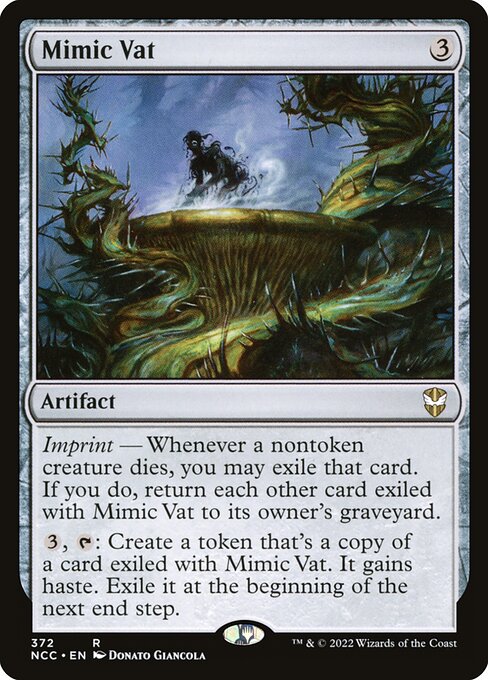
Mimic Vat
-
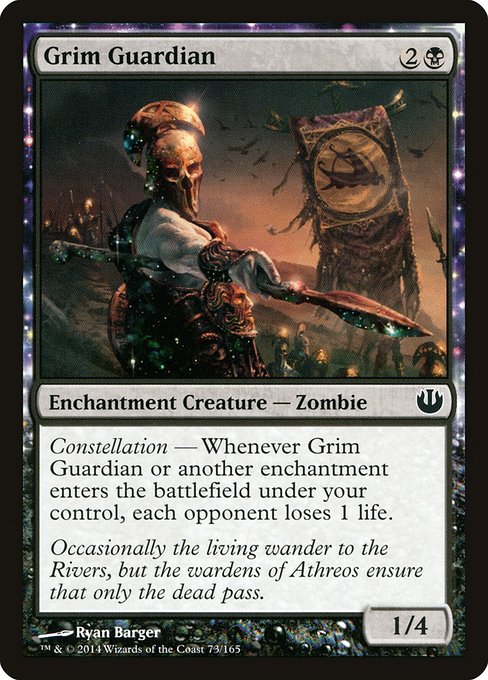
Grim Guardian
-
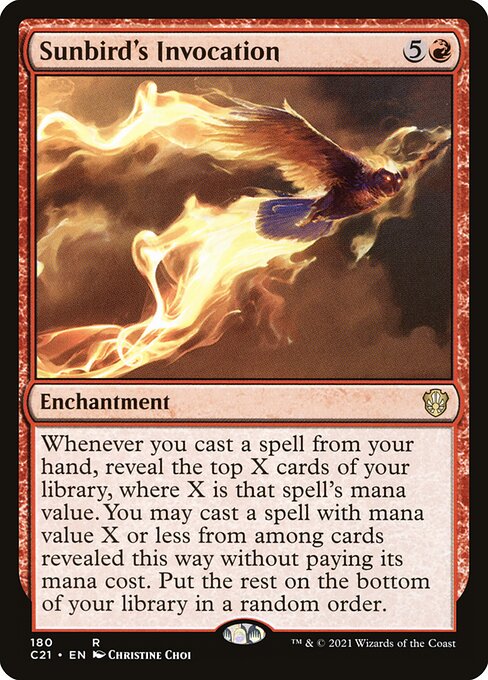
Sunbird's Invocation
-
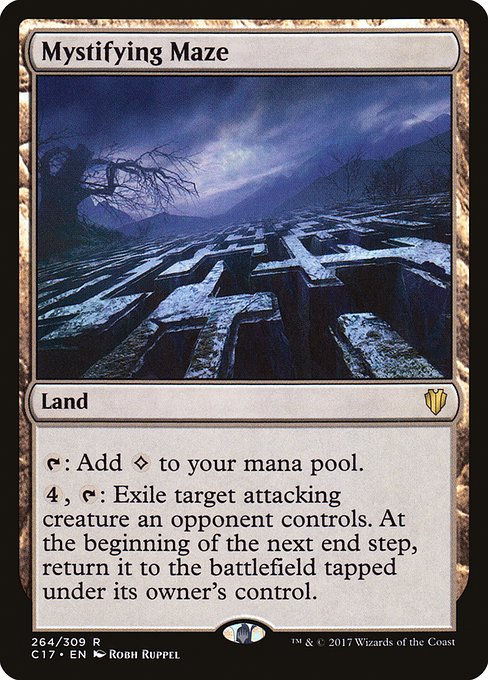
Mystifying Maze
-
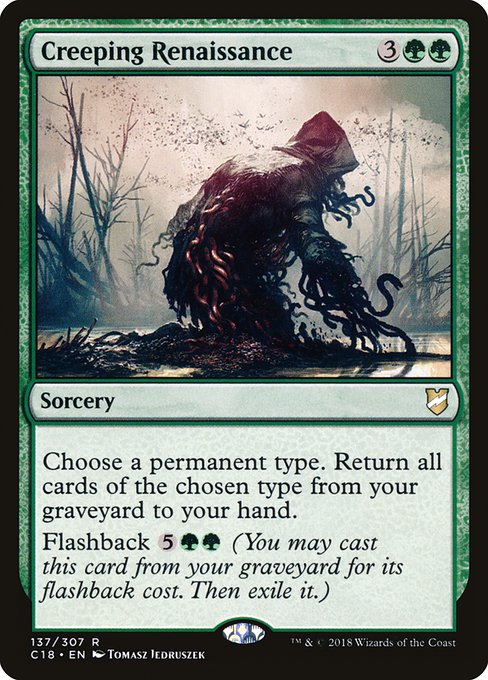
Creeping Renaissance
-
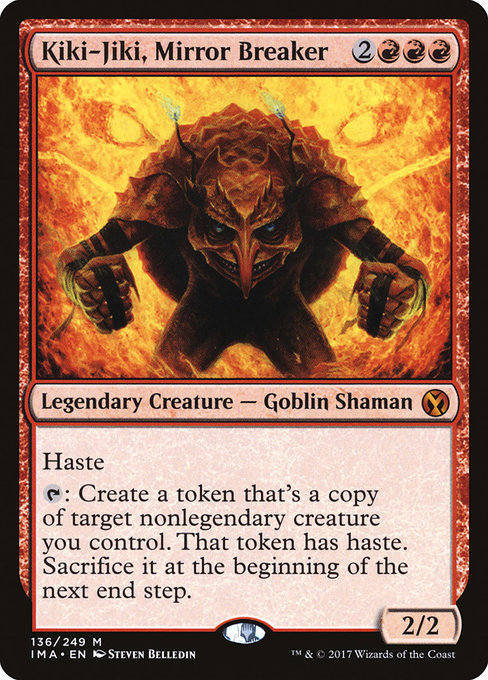
Kiki-Jiki, Mirror Breaker
Gameplay Summary
The game kicked off with all four players setting up their mana bases and early board presence.
Karador established graveyard recursion with cards like Life from the Loam and Elish Norn, Ghost Chieftain, enabling a resilient value engine.
Pharika focused on enchantments and life manipulation, deploying enchantresses to draw cards and recurring creatures like Grim Guardian to maintain board presence.
Kiki-Jiki utilized synergy with prowess triggers and token generation, while Progenitus aimed for ramp and powerful creatures like Mina and Denn, alongside utility lands and protective artifacts. Midgame saw a pivotal moment when Karador cast Bane of Progress, wiping artifacts and enchantments from the board and gaining multiple counters, significantly shifting the board state.
Kiki-Jiki attempted to leverage Abbot of Keral Keep and prowess triggers for incremental damage, while Pharika maintained pressure with enchantress-driven card draw and life gain.
Progenitus used removal and recursion to stay relevant, but the board wipes and recurring threats from Karador's deck kept the momentum firmly in his favor.
The interactions around creatures like Protein Hulk and reanimation spells created explosive plays, with Karador repeatedly rebuilding his board and applying pressure.
The game featured several strategic plays involving mimicry and copy effects, notably Kiki-Jiki copying key creatures and spells to maximize value.
Ultimately, Karador's ability to recur high-impact creatures and clear problematic permanents set the stage for a strong late game presence.


















![Commander Vs S2E1: Horde vs Cromat vs Atogatog vs Progenitus [MTG: Multiplayer] thumbnail](https://i.ytimg.com/vi/zeQvGYqjMGI/sddefault.jpg)






![Commander VS S3E9: Nekusar vs Karona vs Xenagos vs Kiki-Jiki [MTG: Multiplayer] thumbnail](https://i.ytimg.com/vi/meqwIXTAv34/sddefault.jpg)













![Commander VS S1E9: Oloro vs Norin vs Sliver Overlord vs Pharika [MtG: Multiplayer] thumbnail](https://i.ytimg.com/vi/PULZd7d2g_c/sddefault.jpg)
